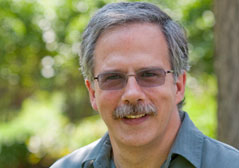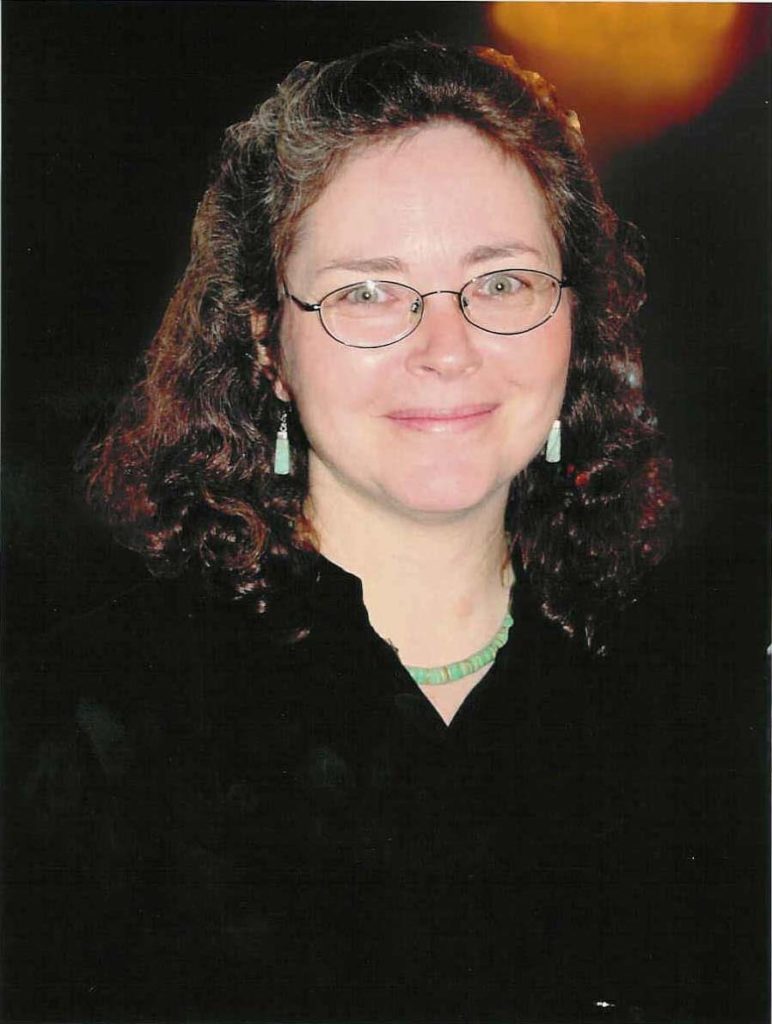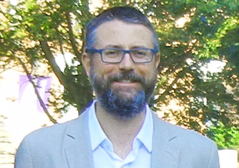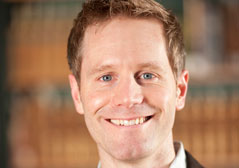
by Matt Heller
Executive Editor
When Alain Brizard, one of only three faculty members in the physics department, talks about physics students, he doesn’t use technical jargon present in his recently published work on gauge-free electromagnetic gyrokinetic theory and perturbative variational formulation of the Vlasov-Maxwell equations. Instead, he calls them unicorns. “Sometimes I think that a physics student is like a unicorn. They’re very rare, but if you go to a place and you ask ‘Do you have any unicorns?’ and the answer is no… something must be wrong, they can’t attract unicorns,” Brizard said.

(Photo Courtesy of Saint Michael’s College)
Last spring, the administration proposed a cut to three programs: Master of Arts in Teaching English to Speakers of Other Languages (MATESOL), French, and Physics. The abrupt proposal gave little time for the programs to respond, said Elizabeth Inness-Brown, chair of the Curriculum and Education Policy Committee (CEPC). So, a summer committee was formed to review them. Each at-risk program compiled a report, and so did the CEPC. Last week, all four reports were sent to the president’s office. Details of the report could not be released at that time.
Despite the proposal, Inness-Brown said she has a positive outlook for the three programs moving forward. There was a similar consensus among the three at-risk programs.
Physics

(Photo Courtesy of Saint Michael’s College)
Brizard acknowledged that the physics department has a small enrollment, usually only two or three new majors a year, but this allows for opportunities other institutions can’t offer. Just this past summer, three physics majors were accepted to nationally-competitive internship programs at places such as the Princeton Plasma Physics Laboratory and NASA’s Goddard Space Flight Center.
In addition to teaching courses in the major, physics professors teach core science classes. After professor John O’Meara’s departure last year to the Keck Observatory, the physics department started counting classes as half-classes for professors. While they still count as four credits for students, it allows the professors to continue teaching core science classes as well as the physics courses.
Brizard, who thinks the caliber of physics students reflects on the college as a whole, said the termination of the program would have rippling effects, even on his competitiveness in research.
“[Physics] looks like an easy target, but when you look closely, then the implications are sometimes a little more nuanced than just saving money… just because we don’t have unicorns,” Brizard said.
He recently met with a consulting agent who is helping the school to market in an attempt to highlight what the program offers. In the future, Brizard hopes to see three to four majors per year, as well as seeing more minors coming from the other sciences and programs such as education.

(Photo courtesy of Saint Michael’s College)
Master of Arts in Teaching English to Speakers of Other Languages
As for the Master’s TESOL program, a program that runs both on-campus and online, changes were being made well before the administration proposal. In the past two years, the number of MATESOL courses being offered in a calendar year has been reduced from 32 to 23.
“To be fair, the administration has been working with us, and it sounds like they’re going to be providing a little more support on the marketing side,” said Benjamin White, director of the MATESOL program.
The program currently has an international presence, highlighted by five Fulbright students from countries such as Nicaragua and Sudan, but White said he wants to work with agencies that provide these students to obtain even more. According to White, the MATESOL program usually has between 40 and 50 students.
Other MATESOL programs in the area have struggled as well. The School for International Training in Brattleboro has moved away from on-site MATESOL programs, and Marlboro College recently graduated their last students in the program.
“The MATESOL program has been around for a long time here, it’s one of the oldest MATESOL programs in the country. So it does seem like a core part of the institution and obviously, we would hate to lose it, so we are doing what we can to keep it healthy,” White said.

(Photo courtesy of Saint Michael’s College)
French
Professor Peter Vantine, the chair of the Fench program, said he was not surprised when he found out that the program was in danger of being cut because smaller majors are under more scrutiny. Currently, there are only about 10 French majors, with 12-16 minors. Last year, the program graduated six majors. Only one of them had declared the major before enrolling. According to Vantine, French is commonly doubled with another major. So, while students might come to St. Michael’s with an interest in French, they don’t declare it as a major right away.
Similar to the MATESOL program, the French program had plans to adjust even before the cut proposal announcement was made. One of the required classes, Literary Studies in French, was switched to an elective, and students will make up for it by taking another elective class. Additionally, one advanced elective that is taught in English can now count for the major. The largest change comes with two new classes, Business French and French for Health Professions, two-credit courses that will alternate every semester.
In addition to these structural changes, Vantine highlighted the extracurricular activities of the program. The French club hosts activities including film screening and trips to Quebec every semester. Additionally, academic study trips led by French professors have increased in number, including a trip to Senegal led by professor Laurence Clerfeuille this upcoming winter.
While factors such as proximity to Quebec and the language’s growing popularity worldwide assists the program, other decisions such as the dropped requirement for second-language for bachelor of science programs have reduced enrollment in French courses.
“I don’t know what administration is going to decide, but I have optimism for what we’re able to do in French. We’re highly motivated to serve our students well,” Vantine said.

